Part 4 – Which Diet Is Right For You?
Scientists believe that the average person hosts about 500 toxic chemicals in his/her body, mostly within their fat tissues. These toxins may lead to serious health conditions such as infertility, liver damage, diabetes, brain damage, cancer, or death.
Ridding yourself of toxins through a healthy detox diet, combined with the right nutrients can help you:
- Dramatically increase your energy
- Reduce chronic achy pain
- Boost mental clarity
- Lose weight (if needed)
- Eliminate bloating, gas and other GI symptoms
- Remove excess water retention (swollen hands, ankles and feet)
- Have glowing, healthy skin, nails and hair
Step-by-step instructions, presentations, live Q&A sessions and more!
- Easy to follow diet, SAFE, gentle protocols (NO harsh chemicals or supplements, cleanses or purges!).
- By simply changing your diet and adding a couple of inexpensive over the counter supplements (optional), you can dramatically reduce your toxic load.
–> Learn more – Register for FREE HERE
to get information on accessing the FREE Zoom presentation, Q&A’s, handouts, recipes and more!
** If you can’t commit to doing the Detox Diet during the scheduled 2 weeks, simply grab the information and do it at your convenience. **
Register here and get your free registration gifts including, “What You Should Know About Organic Foods” Report
Which Diet Is Right For You? – Part 4
The Keto Diet
In the last few years, the keto diet, short for ketogenic diet, has gained immense popularity, and generated numerous success stories. This low-carb, high-fat diet, has caught the attention of almost everyone looking to lose weight or adopt a healthier lifestyle.
Even though the diet has become popular in the last few years it’s been used to manage diabetes since the 19th century.
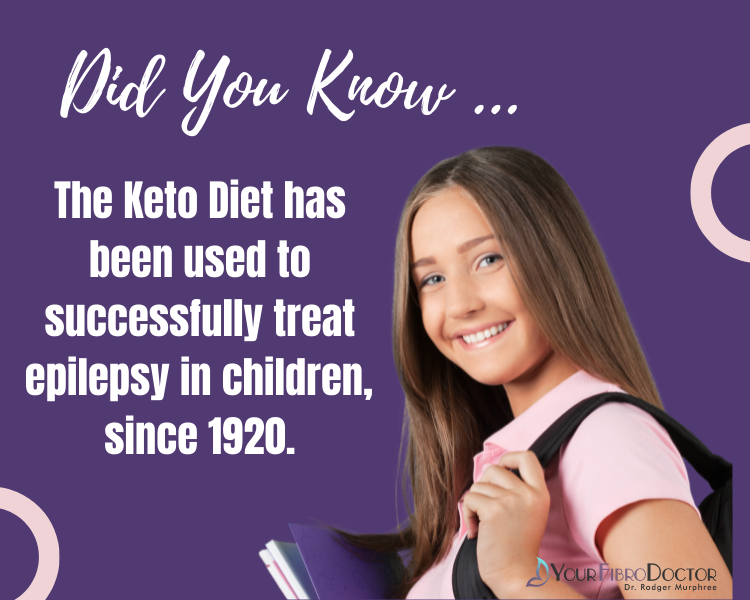
Unlike other similar low-carb diets like the Atkins or the Paleo diet, which focus on high protein intake, dietary fat intake accounts for 70-90% of daily calories.
The high fat, low carb diet creates a metabolic state in which the body uses fat rather than glucose to produce energy.
Limiting carbohydrate intake creates a glucose deficiency causing the body to go into ketogenesis, an alternative source of energy production, resulting in ketosis. Through ketogenesis, our liver uses the stored fat in our body to produce ketone bodies. These ketones act as a substitute for glucose, providing energy to the body.
By limiting carbohydrate consumption to just 5–10% of all calories, the keto diet causes our body to use our fat reserves as fuel. This typically leads increased metabolism and to weight loss.
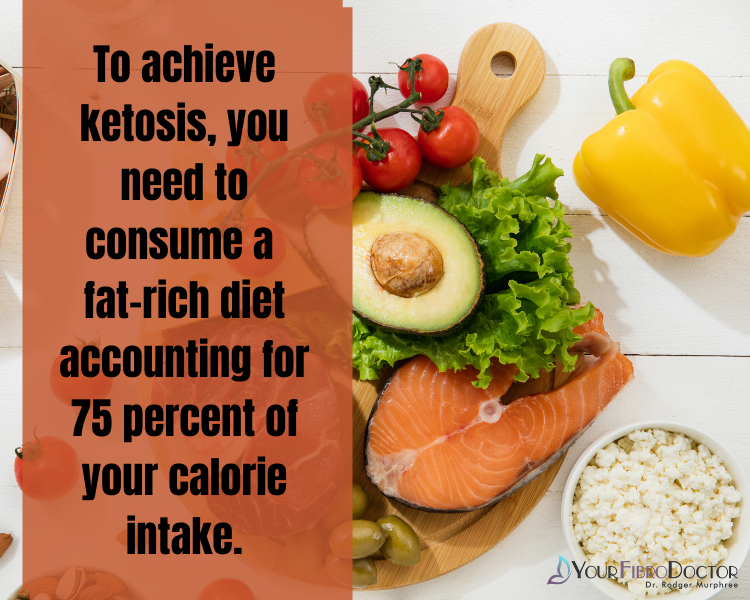
Since our bodies can turn protein into glucose, when present in high quantities the Keto diet also limits the amount of protein intake. Eating 20-50 grams (80-200calories) of carbohydrates each day, on a 2000 calorie diet, it usually takes 2 to 4 days to reach ketosis.
The Diet can be followed using a variety of variations:
- Standard ketogenic diet (SKD): This diet allows very little carbohydrate intake, paired with moderate amounts of protein and high-fat content. It usually constitutes of 70% fat, 20% protein, and 10% carbohydrates.
- Cyclical ketogenic diet (CKD): This diet allows a higher intake of carbohydrates, periodically, rotated with ketogenic diet cycles. For example, a five-day ketogenic cycle is followed by a two-day cycle of consuming greater amounts of carbohydrate, compared to the ketogenic cycle.
- Targeted ketogenic diet (TKD): This variation of the keto diet allows additional carbohydrate intake around periods of intense physical exercise.
- High protein ketogenic diet (HPKD): Similar to the standard ketogenic diet, this variation of the keto diet involves the consumption of more protein. The ratio of the various constituents is around 60% fat, 35% protein, and 5% carbohydrate.
The cyclical and targeted ketogenic diets are mostly followed by bodybuilders or athletes.
Since the Standard ketogenic diet (SKD) is the most recommended keto diet and has been widely studied.
Starting with the basics, the following are the foods that must be limited or eliminated on a keto diet:
- Foods containing excess or added sugar like soda, other processed beverages and foods, fruit juice, smoothies, candy, ice cream, cake, etc.
- Grains and starchy foods like wheat, rice, pasta, bread, breakfast cereal, etc.
- Almost all fruits, other than a few berries, of which small portions are allowed.
- Beans and legumes like peas, lentils, kidney beans, chickpeas, etc.
- Root vegetables and tubers like potatoes, sweet potatoes, yams, parsnips, carrots, etc.
- Other starchy vegetables like corn.
- Products labeled low-fat or diet, like low-fat mayonnaise, margarine, salad dressings, and other seasonings.
- Certain condiments and sauces, including barbecue sauce, teriyaki sauce, ketchup, honey mustard, etc.
- Unhealthy fats including processed vegetable oils, mayonnaise, etc.
- All alcoholic beverages including beer, wine, and mixed drinks.
- Sugar-free diet foods like sugar-free candies, syrups and sweet sauces, puddings, desserts, and artificial sweeteners.
Eliminating the foods mentioned above, the keto diet meal plan should mostly be based on the foods listed below:
- All types of meat including red meat, especially fatty portions of poultry, ham, sausages, steak, and bacon,
- Fatty fishes like salmon, trout, Atlantic herring, tuna, and mackerel
- Pastured or omega-3 whole eggs
- Dairy products including grass-fed butter, heavy cream, and unprocessed cheeses like cheddar, mozzarella, goat’s cheese, cream cheese, or blue cheese.
- Nuts and seeds like walnuts, almonds, flaxseeds, chia seeds, pumpkin seeds, etc.
- Healthy oils including extra virgin olive oil, avocado oil, and coconut oil.
- Whole avocados or freshly made guacamole.
- Low carbohydrate, high fiber vegetables including green, leafy vegetables like kale and spinach, and other vegetables like broccoli, cauliflower, Brussels sprouts, asparagus, bell peppers, celery, tomatoes, onions, cucumber, summer squashes, mushrooms, etc.
- Certain condiments like salt, pepper, herbs, and spices.
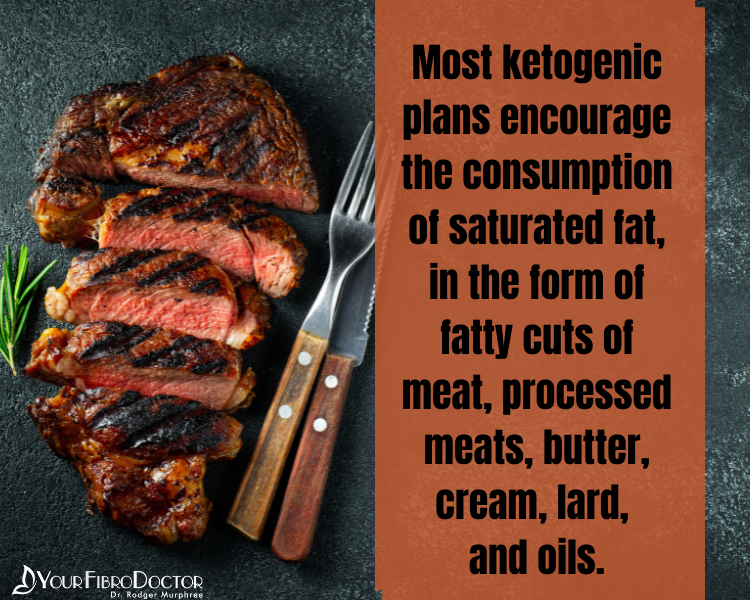
However, it also includes some healthy unsaturated fats, like nuts, seeds, tofu, avocados, and olive oil.
It also allows the consumption of 70-90 percent dark chocolate, cottage cheese, Greek yogurt, especially the full-fat version, and nut butters like peanut butter and almond butter.
Taking into account the foods allowed and encouraged by the keto diet, and those eliminated, it’s not hard to see how it could be associated with health risks in older adults, especially in the long term.
However, many of the reservations about the diet have been addressed and numerous studies show the diet to be a largely healthy one.
The purported benefits and health risks of the keto diet, along with its side effects are discussed below.
Benefits of Keto Diet
-
Weight Loss
Studies have reported that the Keto diet is not only effective in reducing weight and overall fat mass, but also in reducing risk factors of associated disorders like diabetes, obesity, and cardiovascular diseases. However, this requires careful implementation of the diet, accounting for the specific needs of the patient in question, monitoring various risk factors closely so as to avoid adverse effects.
The Keto diet promotes greater satiety and thus regulates hunger as well. It also improves the oxidative metabolism of fats, increasing its effectiveness in reducing weight, especially over time.
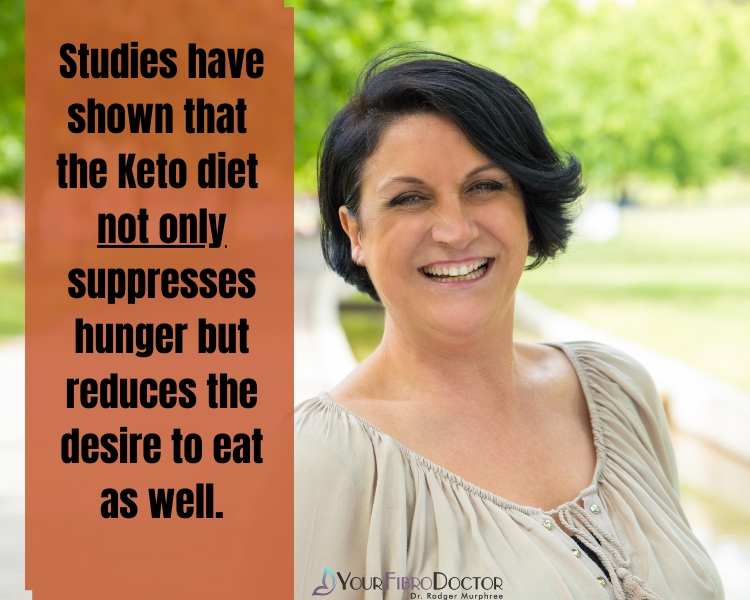
Moreover, apart from regulating appetite, the Keto diet also suppresses hunger that has been induced by weight loss, making it an effective approach towards attaining significant loss of weight.
One study in 34 older adults reported that following a ketogenic diet for 8 weeks resulted in around 3 times greater reduction in total body fat, than that on a low-fat diet.
Moreover, the Keto diet also resulted in greater improvements in insulin sensitivity and HDL-C levels, and reductions in fasting insulin and triglyceride levels, compared to the low-fat diet. It also reported the reduction of diastolic blood pressure and triglyceride levels, in people who followed the Keto diet.
The Keto diet can be an effective way to reduce weight, especially in obese and diabetic people.
-
Diabetes Prevention and Management
Since obesity is closely linked to pre-diabetes, type 2 diabetes, and metabolic syndrome, the Keto diet could be an effective way to manage or prevent these conditions, by reducing the excess fat in the body.
It has been seen that the Keto diet significantly lowers the glycemic response resulting from carbohydrate consumption while enhancing insulin resistance as well. Moreover, the Keto diet is an effective alternative to conventional treatment, and reduces the need for medication, and could be the better option in regards to treating diabetes when medications are not available or desirable.
Another study reported an average weight loss of 26.2 pounds (11.9 kg) in people with type-2 diabetes, over a 2-year period, for those who practiced a ketogenic diet. This is significant considering the link between type 2 diabetes and obesity. The Keto diet promoted long-term and sustained benefits over several clinical markers of diabetes and cardiometabolic health over the 2 years of study, while reducing the dependence on medication.
The Keto diet also helped patients effectively manage blood sugar and diabetes, along with visceral obesity, without any adverse effect on bone health.
-
Other health benefits
The Keto diet has been shown to reduce obesity, regulate blood pressure and blood sugar levels, and improve HDL levels.
The keto diet may also reduce the symptoms of Alzheimer’s disease and delay its progression.
A small study also found that a ketogenic diet improved the symptoms of Parkinson’s disease, and although more research is needed, the neuro-protective effects of this diet could well be beneficial for managing Parkinson’s disease.
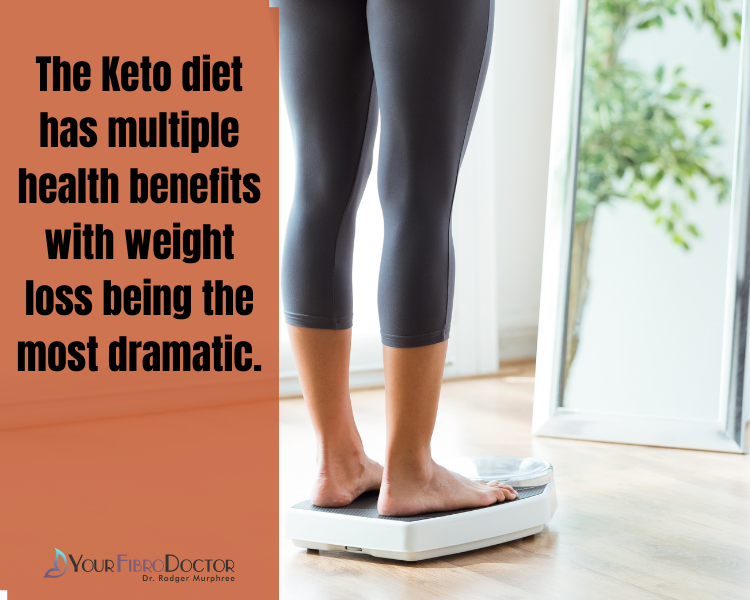
Risks and Side Effects of Keto Diet
Some of the common side effects of the keto diet while transitioning into ketosis, often called the keto flu, are listed below. These side effects are normally short lived and uneventful but are a possibility when transitioning from a carbohydrate to keto oriented diet:
- insomnia
- dizziness
- headaches
- nausea and vomiting
- endurance issues when exercising
- fatigue
- constipation
- mood disturbances
- hunger
- brain fog
These side-effects are however temporary, lasting few days up to a few weeks.
In the long term, the keto diet can pose some serious risks, some of which are listed below.
Cardiac Disorders: Containing high quantities of saturated fat, the keto diet could easily lead to an increase in LDL levels, which is associated with various heart diseases.
However studies are now showing and my clinic al experience validates, for the majority of people the Keto diet actually reduces cardiovascular risk markers including cholesterol, LDL, glucose, inflammation, and fat cells.
Deficiency of Nutrients: By eliminating a wide variety of vegetables, fruits, and grains, the keto diet can put one at risk of being deficient in micronutrients like selenium, magnesium, phosphorus, and vitamins B and C. I recommend taking a good optimal daily allowance multivitamin.
Liver problems: The high amount of fat metabolism required on the keto diet could severely impact the liver, and worsen existing conditions. True those with a fatty liver may notice some minor issues. Its best to take a good digestive enzyme with each meal and if you have a fatty liver add milk thistle or a the Essential Therapeutics Liver Detox formula.
Kidney problems. Since the kidneys help metabolize protein, the keto diet recommending mostly animal protein, which is harder to metabolize, can overload the kidneys. It can also lead to kidney stones.
Long-term use of the diet can without consuming allowable green leafy vegetables increase the risk of osteoporosis. Since dairy products are allowed, getting enough calcium and other bone building minerals shouldn’t be a problem, especially if taking a good optimal allowance multivitamin.
My Experience
I’ve found the Keto diet to be very helpful in losing weight, lowering blood pressure, cholesterol, triglycerides, insulin, inflammation, and A1c (a marker for diabetes).
I find this diet can be hard for those who aren’t used to eating a lot animal products. The avoidance of most carbs can be a challenge, especially long term.
If you want to lose weight fast, usually half a pound a day, then check out the diet my patients use at www.2Transformhealth.com

To ensure you’re getting the nutrients you need for optimal cellular health I recommend eating a healthy diet and taking a digestive enzyme with each meal.
Essential Therapeutics Digestive Enzymes – 15% OFF (discount code: AUG21DE)
Step-by-step instructions, presentations, live Q&A sessions and more!
- Easy to follow diet, SAFE, gentle protocols (NO harsh chemicals or supplements, cleanses or purges!).
- By simply changing your diet and adding a couple of inexpensive over the counter supplements (optional), you can dramatically reduce your toxic load.
–> Learn more – Register for FREE HERE
to get information on accessing the FREE Zoom presentation, Q&A’s, handouts, recipes and more!
** If you can’t commit to doing the Detox Diet during the scheduled 2 weeks, simply grab the information and do it at your convenience. **
Register here and get your free registration gifts including, “What You Should Know About Organic Foods” Report


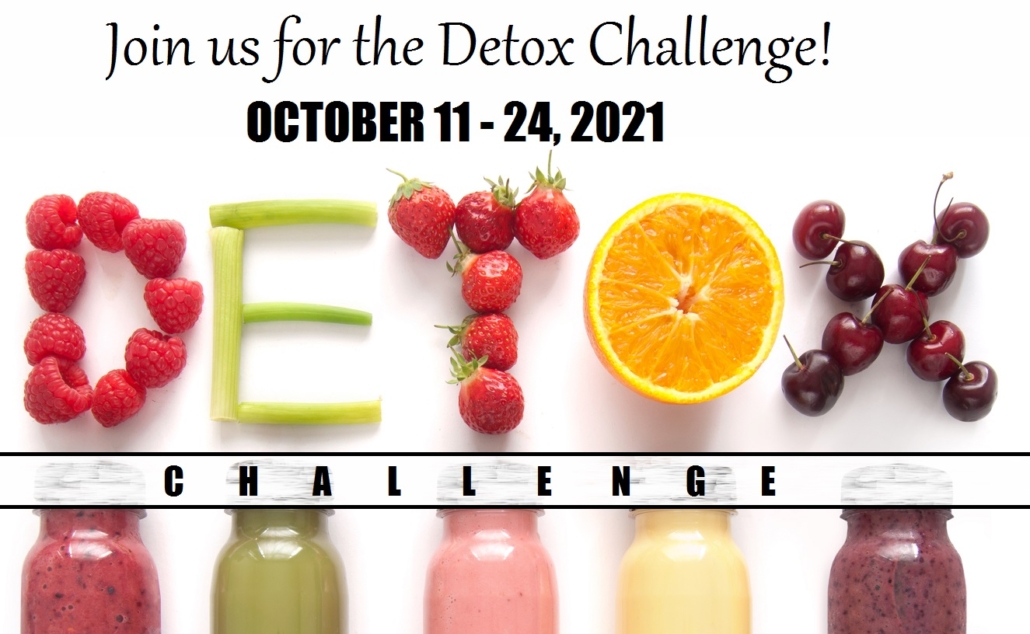
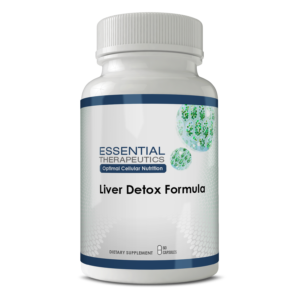
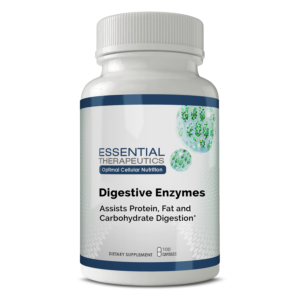



Leave a Reply
Want to join the discussion?Feel free to contribute!